The Raw Mango campaign is precisely how India views Kashmir
British-Kashmiri writer and photographer Sumaya Teli breaks down the problems with a recent campaign that made its rounds on Instagram before it was pulled.
On Wednesday, Raw Mango, an Indian design house, launched a new line of textiles via a video on Instagram.
In the video, a ‘Kashmiri’ bride in a designer pheran, and draped in a bridal veil (wearing jewelry that is distinctly not kashmiri) at her nikah is asked by an Imam if she accepts the offer of marriage.
She is asked three times and accepts. All the while, the camera remains fixed, and dramatically so, on her face.
The video ends.
A caption under the video reads: “Zooni … because kashmir is about its people. Which needs to be seen and heard.”
This caption is repeated under photographs of the model wearing red and gold embroidered clothes sitting on a boat and various other locations.
The video and photographs drew immediate outrage and some hours later, it was taken down.
This isn’t the first time Kashmir has been used in this manner, and I’m certain it won’t be the last.
Here’s why Kashmiris are upset with this campaign:
First. A designer brand is using Kashmiri culture to sell an Indian product at a time when 8 million people are living under an Indian government imposed communication blockade; more than 13,000 people including children have been arrested and detained and when a genocide alert has been issued for the region.
It’s not merely tone deaf, it’s exploitative and cruel.
Second. The caption says “Zooni … because Kashmir is about its people. Which needs to be seen and heard.”
Ironically, a cursory glance on the credits show that from the art director to the writer to the hair and makeup artists, no one involved in the video is actually Kashmiri. And if there are they reduced to props.
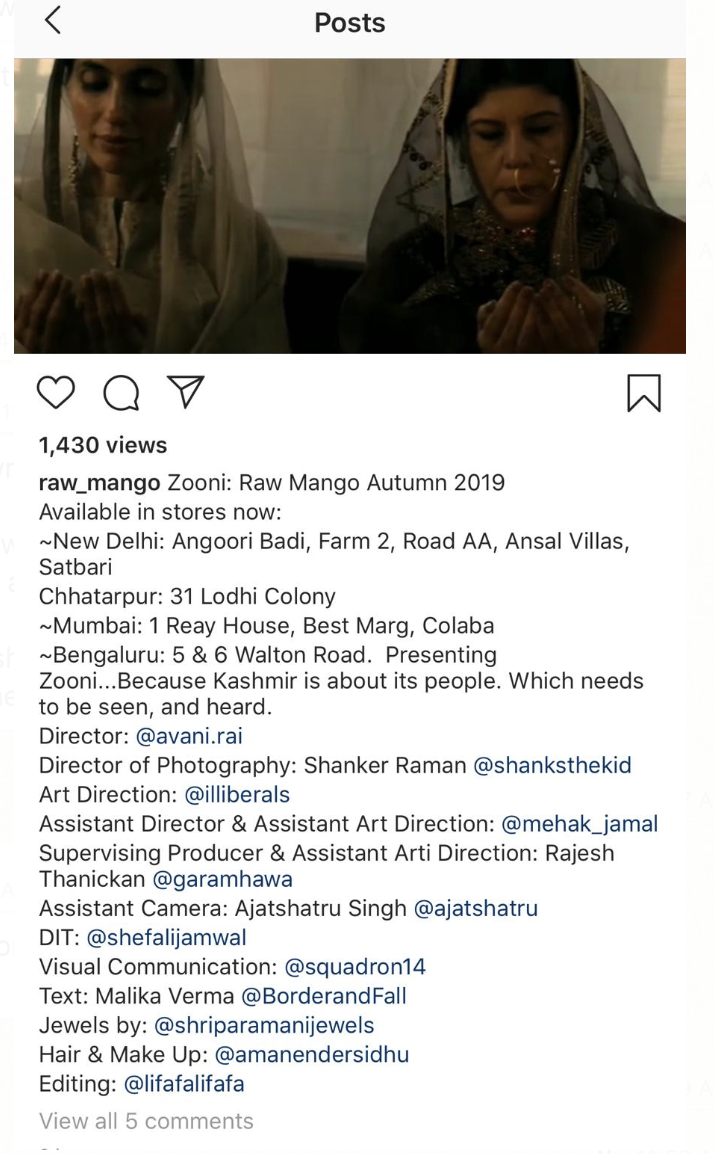
No Kashmiris are to be seen and heard here.
In fact, in case the point isn’t already clear enough, Kashmiris are being silenced and disappeared
Third. The Kashmir Pheran, an item of clothing that has been in the past policed and at one point even banned by the Indian government, is being blatantly exotified.
Fourth. The cliched epitaphs of Kashmir such as Chinars and mountains are romanticized depicting some utopia world of heritage and exquisite design — contrasting sharply with the dystopia in which Kashmir has seen itself forcibly plunged.
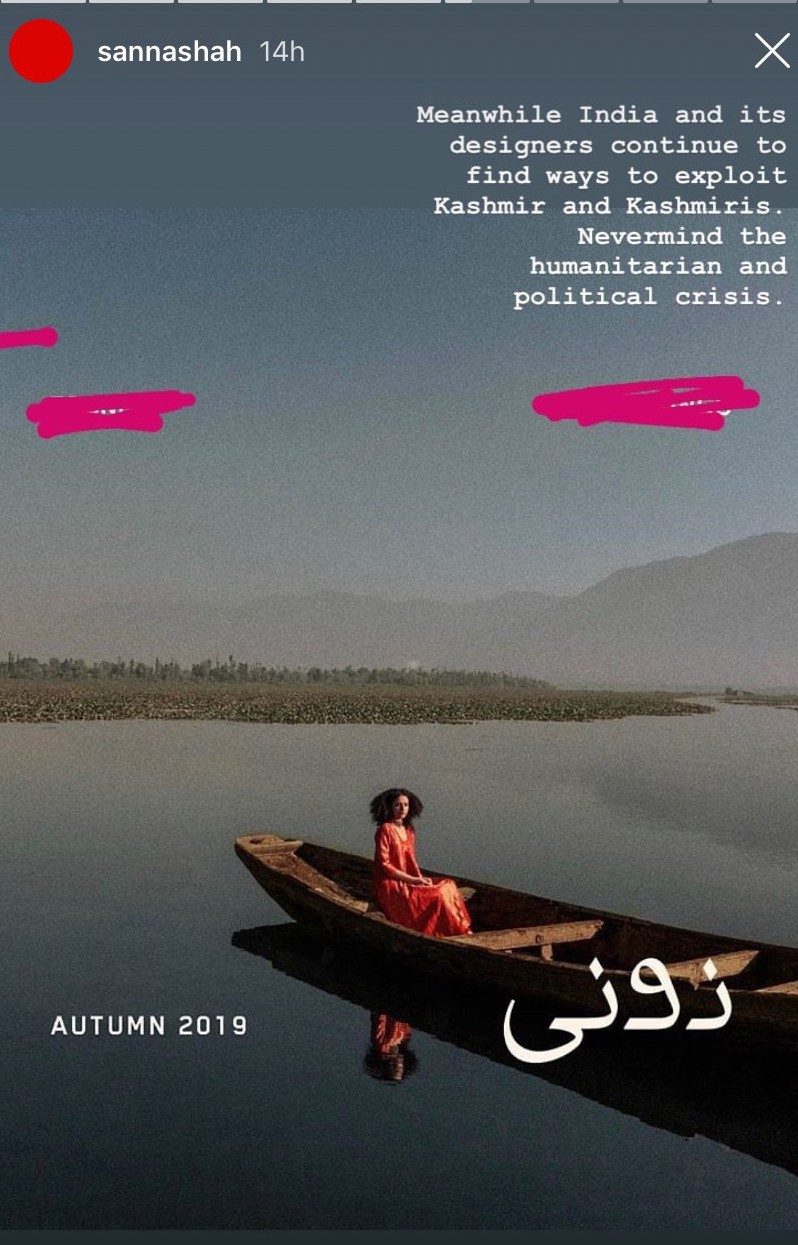
Fifth. Kashmiri and Kashmiri based designers such as ‘Tul Palav’ and ‘Hamzaara’ and many more have had their business come to a grinding halt since August 5th.
They are not able to get in touch with their clients or the Kashmir-based artisans they work with. Not only will Kashmiris themselves not be able to actually see the ad campaign, they will draw no benefit from it.
Clearly, Kashmir is again merely used here as nothing more than a prop.
Sixth. India’s selective memory when it comes to Kashmir.
I reached out to Avani Rai, the director of the short film, to try and understand what she made of the whole debacle.
Avani has spent much of the past month trying to showcase the realities of what has been going in the valley. She explained that the Raw Mango video was shot in May/June and following the events of August 5, when Article 370 was revoked, she did not want to be publicly associated with the project, and says she was one of the main instigators in having it pulled down.
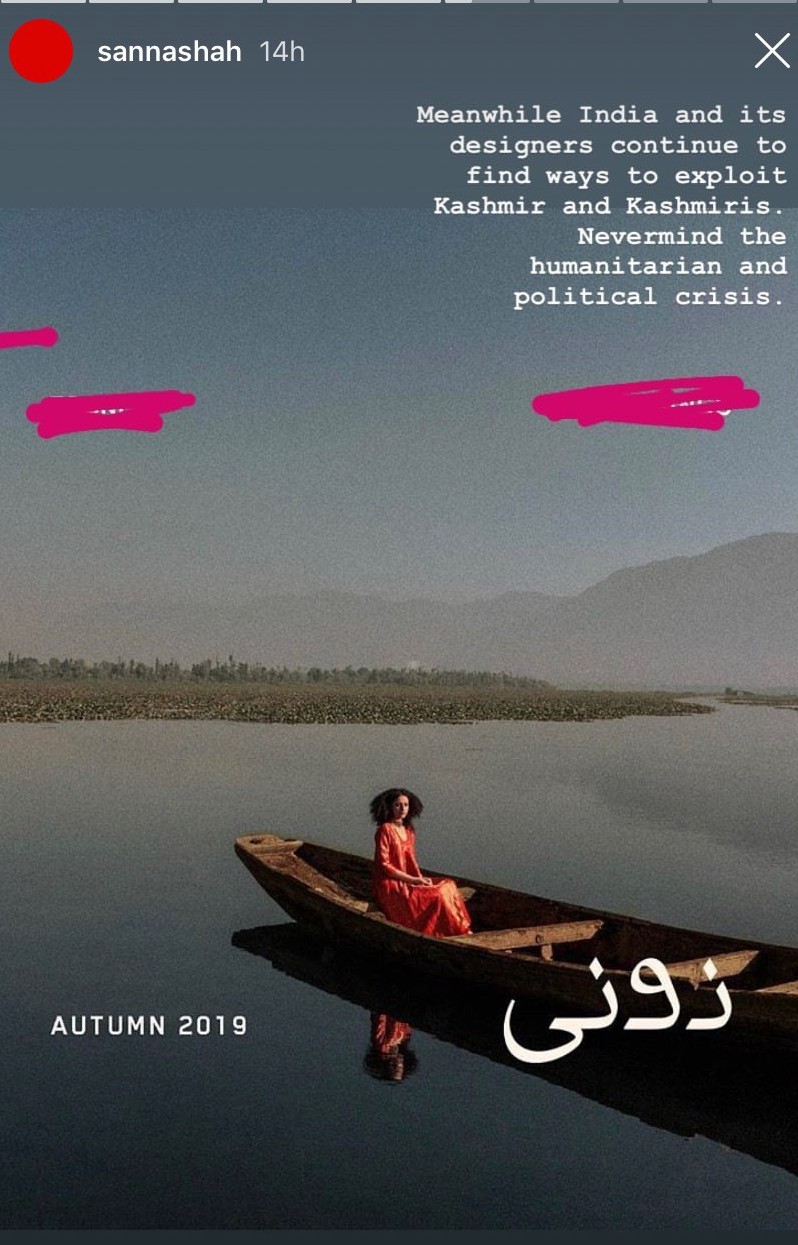
I’m not sure Avani realizes it, but this trauma began well before August 5th.
Surely anyone who covers Kashmir knows that 70,000 people have been killed in the valley over the last 30 years?
Or about the 7,000 enforced disappearances?
And what about the thousands injured by pellets since 2016?
And the 700,000 military troops occupying the territory over the past three decades?
There has never been a good time to use Kashmir to sell India. And yet, India has always profited from exploiting Kashmir and Kashmiris, not just in business and fashion, but in India’s booming entertainment industry too.
Since the inception of Bollywood, the mountains and fields of Kashmir have been used as a backdrop for romantic song and dance numbers. This is where the real tragedy lies — for in these same fields and mountains — Indian military have committed sexual crimes against the bodies of thousands of Kashmiri women with complete impunity.
Bollywood even as the nerve to take the old Kashmiri refrain for “Azadi” (freedom) and turn it into a rap video as they did in the recent film ‘Gully Boy’.
Meanwhile in Kashmir, boys are being detained and tortured for uttering the same words.
Leaving aside the taking over of the voices of a people and speaking for them, dressing up as us and claiming to represent us— while at the same time your government is oppressing us — makes this all the more staggering.
There may be a blackout in Kashmir right now, but we are not blind to your exploitation of us.
And we will no longer stand for it.
©2025 StandWithKashmir All rights reserved. SWK is a 501(c)(3) non-for-profit organization.

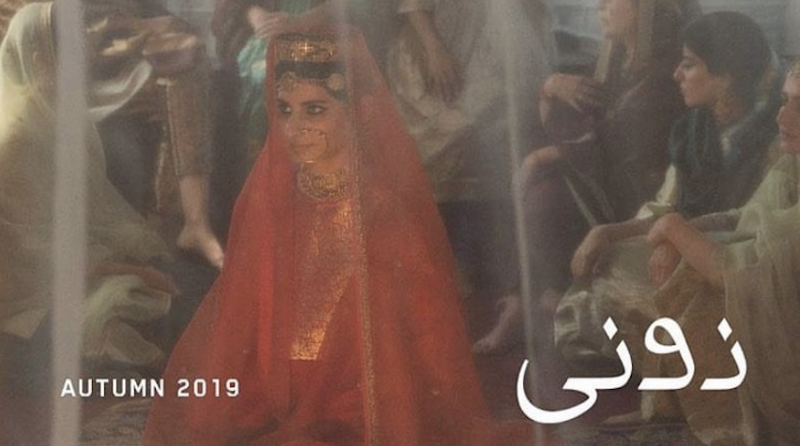
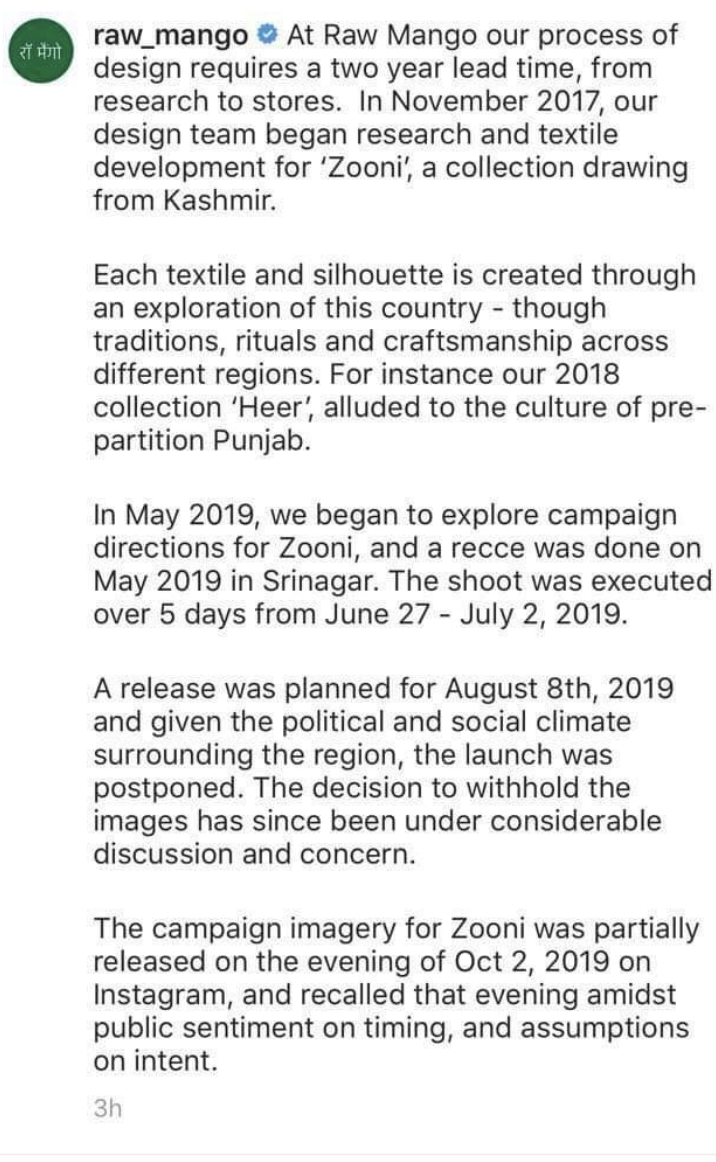

Leave a Reply